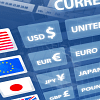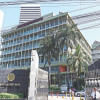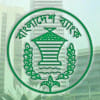‘Policy rate hike, flexible exchange rate will be helpful for economy’

The Bangladesh Bank's decisions of hiking the policy rate, allowing the market to determine the interest rate and a more flexible exchange rate will be helpful for the country to take the economy out of the crisis, a top economist said today.
"It is a good step forward. The rate of interest may rise for private lending. But that is necessary. We have to live through that to tackle the current challenges," said Ahsan H Mansur, executive director of the Policy Research Institute of Bangladesh (PRI).
He said the interest rate, which was earlier determined by the Six Months Moving Average Rate of Treasury bills (SMART), was not reflecting the market reality properly.
"The situation turned such that yields of government's treasury bills and bonds were way above the lending rate for the private sector. Such anomaly cannot exist in a market," he said.
"Now the interest rate cannot be controlled. Because there is a huge requirement for borrowing by the government."
Mansur, a former economist at the International Monetary Fund, said the interest rates would rise.
This may slow the economy further. But it is necessary to overcome the challenges, he said.
He welcomed the move to let the taka find its value through the introduction of the crawling peg -- a flexible exchange rate system.
He said this would stabilise the taka-dollar exchange rate and improve foreign exchange reserves, which have depleted substantially over the last two years.
"That is important," he said.
Until now, there has been an imbalance in the rate and exporters are forced to take Tk 110 for a dollar, he said.
"The depreciation will help increase exports. The government should also discontinue extending subsidy for remittance."
Asked whether the measures will bring back stability in the economy, he said: "This is a necessary step, not sufficient. Without the steps, taking the economy out of the crisis would not be possible," he said.
"We have to cut our spending in the national budget as well."

 For all latest news, follow The Daily Star's Google News channel.
For all latest news, follow The Daily Star's Google News channel. 







Comments